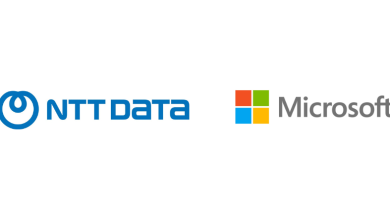
by Gaurav Arora, AWS Asia-Pacific Japan Head of Startup and Priya Lakshmi, AWS ASEAN Head of Startup

Entrepreneurship is the engine of a thriving economy, driving growth and nurturing innovations that help us race to the podium faster. When firing on all cylinders, this engine can accelerate businesses, and the most exciting action comes from drivers at the wheel of startups. Agile and unconstrained, startups solve new problems, anticipate unknowns, and look around corners. While their ability to think bigger, differently, and more courageously is crucial to success, their pace, creativity, and innovation are enhanced by diversity. However, not everyone starts from the same position, and some startups face a lack of opportunity before the race even begins.
Less Investment, Less Opportunity
In Southeast Asia, women-founded startups received between 0.3% to 0.6% of total venture capital funding in 2021. This is despite these businesses ultimately delivering higher revenues than those founded by men. A 2020 McKinsey survey found that companies with more than 30% women executives were more likely to outperform companies with fewer women executives, and in turn, these companies were more likely to outperform those with even fewer women executives or none at all. Studies have shown that women leaders tend to outperform their male counterparts by being more empathetic, humble, emotionally intelligent, and kinder, among other traits – all qualities that help startups thrive.
To make the startup race more inclusive for women, business leaders and investors need to fully understand the value of a diverse team and take urgent steps to level the start line so that anyone can have a fair shot at the podium. To achieve this, leaders must create opportunities with the right funding, knowledge, and digital skills.
The Perfect Pit Crew
Despite the trickle of investments coming in for women-led startups, there is a groundswell of support coming from women-focused venture capital firms like HerCapital, education platforms like Tigerhall, and non-profit women advocacy groups like the Indian Women’s Institutional League (IWIL). As organizations recognize the need for change, they are collaborating with Amazon Web Services (AWS) on programs that are designed to provide women founders with the resources, visibility, and access to grow their businesses.
One of the most recent support programs launched this year. AccelerateHer is an intensive acceleration program designed to enable women founders of leading early-stage startups in India to build, grow, and scale a successful business in technology. The program is built on Techxelerate, co-created with IWIL, and supported by 20 incubation and industry partners, and sponsored by the AWS Inclusion, Diversity, and Equity Innovation (ID&E) Fund. The program was built to support women founders through networking and mentorship opportunities. In collaboration with Tigerhall and the ASEAN Women Founders Mentorship Program, the next generation of women entrepreneurs receive guidance from AWS women leaders, as well as advice from other women startup founders. One of the mentors in Tigerhall’s program is Juliet Zhu, CFO of Carsome, Southeast Asia’s largest integrated car e-commerce platform. Juliet’s journey in overcoming challenges in building one of Southeast Asia’s biggest unicorns is a story that is inspiring the next generation of startup founders.
Helping Startups to the Chequered Flag
In our experience working with founders, those that master the twin levers of technology and talent significantly boost their chances of success. Cloud technology has the potential to open opportunities and encourage the economic participation of all members of society. With cloud, someone in their garage or dorm room can access the same scale and cost structure as the largest companies in the world. Hyejun Lee of South Korea is one example of an entrepreneur using the cloud to join the tech industry. Hyejun founded Kai Health to build a digital tool that helps clinicians make better decisions in reproductive health using data and artificial intelligence (AI).
The will to digitally upskill in the APAC region is strong, which is fortunate because a digitally savvy workforce that includes more women is key to a successful digital economy. A recent Gallup study found that most women workers (75%) in the APAC region are “extremely” or “very interested” in training in at least one digital skill, but nearly half (45%) say a lack of time is a barrier to obtaining skills training. Self-paced digital learning programs like AWS re/Start are designed to provide unemployed and underemployed individuals with the flexibility to build up their digital knowledge for an entry-level career in technology.
Given the learning opportunities available today, countless founders are challenging the notion that you have to be from the tech world to build a startup. Tessa Wijaya is the COO of Xendit, a leading digital payments company in Indonesia and the Philippines. Tessa is a great example of someone who pivoted from investment banking to building a successful fintech company in Southeast Asia.

The Victory Lap in Sight
There is still much to be done before we can to achieve gender equity in the startup industry, but with a more supportive landscape, greater technological possibilities, and democratized learning, women founders are seizing the opportunities to prove what’s possible today. Juliette Murphy said, “Over my career in engineering, it’s fair to say that I have always found myself in the minority, in what remains a male-dominated field”. As CEO and co-founder of FloodMapp, an early-stage tech company that specializes in rapid real-time flood forecasting and flood inundation mapping using the cloud, Juliette said, “By taking the risk to build a company from the ground up, I have shown the industry and the next generation what is possible if you believe in yourself and have the determination to get there”.
While technology makes innovation possible, it’s people who get the real work done, and the more inclusive a team is, the better it will function. In the race to achieve gender equity in the startup industry, a strategy that includes inclusive policies will make the race fairer for all.




